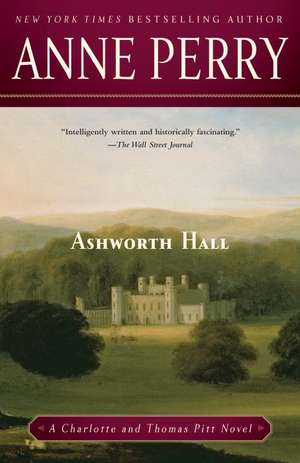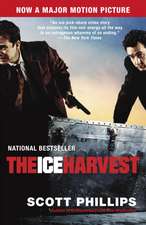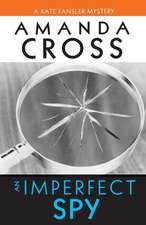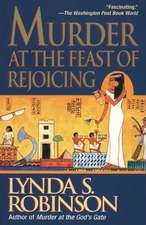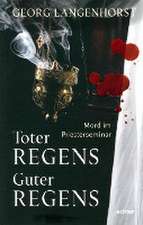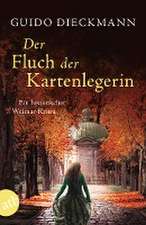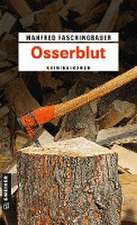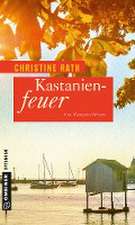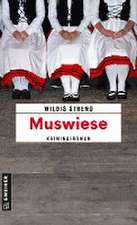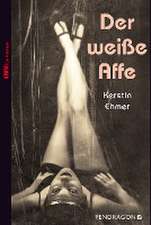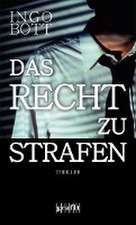Ashworth Hall: A Charlotte and Thomas Pitt Novel: Charlotte & Thomas Pitt Novels (Paperback)
Autor Anne Perryen Limba Engleză Paperback – 30 sep 2011
Preț: 109.54 lei
Nou
Puncte Express: 164
Preț estimativ în valută:
20.96€ • 21.80$ • 17.31£
20.96€ • 21.80$ • 17.31£
Carte disponibilă
Livrare economică 25 martie-08 aprilie
Preluare comenzi: 021 569.72.76
Specificații
ISBN-13: 9780345514219
ISBN-10: 0345514211
Pagini: 373
Dimensiuni: 130 x 201 x 25 mm
Greutate: 0.3 kg
Editura: BALLANTINE BOOKS
Seria Charlotte & Thomas Pitt Novels (Paperback)
ISBN-10: 0345514211
Pagini: 373
Dimensiuni: 130 x 201 x 25 mm
Greutate: 0.3 kg
Editura: BALLANTINE BOOKS
Seria Charlotte & Thomas Pitt Novels (Paperback)
Notă biografică
Among Anne Perry's other novels featuring Thomas and Charlotte Pitt are Pentecost Alley, Traitors Gate, The Hyde Park Headsman, Highgate Rise, and her newest, Brunswick Gardens. She also writes the popular novels featuring investigator William Monk, including The Silent Cry, a Main Selection of the Mystery Guild, Weighed in the Balance, Cain His Brother, and Defend and Betray. "Her grasp of Victorian character and conscience still astonishes, said The Cleveland Plain Dealer about the author. Hundreds of thousands of readers agree.
From the Paperback edition.
From the Paperback edition.
Extras
Pitt stared down at the body of the man lying on the stones of the alley. It was a gray October dusk. A few yards away on Oxford Street the carriages and hansoms were whirling by, wheels hissing on the wet road, horses' hooves clattering. The lamps were already lit, pale moons in the gathering darkness.
The constable shone his lantern on the dead face.
"'E's one of ours, sir," he said with tight anger straining his voice. "Least 'e used ter be. I know'd 'im. That's why I sent for you personal, Mr. Pitt. 'E went orff ter summink special. Dunno wot. But 'e were a good man, Denbigh were. I'd swear ter that."
Pitt bent down to look more closely. The dead man -- his name was Denbigh, according to the constable -- looked to be about thirty and was fair skinned, dark haired. Death had not marred his features. He looked only slightly surprised.
Pitt took the lantern and shone it slowly over the rest of him. He was dressed in very ordinary cheap fabric trousers, plain cotton collarless shirt and poorly cut jacket. He could have been a laborer or factory worker, or even a young man come in from the country looking for employment. He was a little thin, but his hands were clean, his nails well cut.
Pitt wondered if he had a wife and children, parents, someone who was going to grieve for him with the deep, hurting pain of love, more than the respect this constable beside him felt.
"What station was he from?" he asked.
"Battersea, sir. That's w'ere I knew 'im. 'E weren't never in Bow Street, which is w'y you don't know 'im, sir. But this isn't no ordinary murder. 'E's bin shot, an' street robbers don' carry guns. They uses knives or a garrote."
"Yes, I know that." Pitt looked through the dead man's pockets gently, his fingers searching. He found only a handkerchief, clean and mended carefully on one corner, and two shillings and ninepence ha'penny in change. There were no letters or papers to identify the body.
"You're sure this is Denbigh?"
"Yes sir, I'm sure. I know 'im quite well. Only for a short time, but I remember that mark wot 'e got on one ear. Unusual, that is. I remember people's ears. Yer can make a lot of things look different, if yer wants ter pass unnoticed, but almost everone forgets their ears stays the same. Only thing yer can do is get 'air wot ides 'em. I wish as I could say as it wasn't, but that's Denbigh, poor soul."
Pitt straightened up. "Then you were right to call me, Constable. The murder of a policeman, even on off duty, is a very serious thing. We'll start as soon as the surgeon comes and takes the body. I doubt you'll find any witnesses, but try everyone. Try again tomorrow at the same time. People may pass regularly on their way home. Try the street traders, cab drivers, try the nearest public houses, and of course all the buildoings around with a window into the alley, any part of it."
"Yes sir!"
"And you've no idea who Denbigh was working for now?"
"No sir, but I reckon it were still some department o' the police, or the gov'ment."
"Then I think I had better find out." Pitt rammed his hands into his pockets. He was cold standing still. The chill of the place, islanded in death as it was, only yards from the rattle and bustle of traffic, seeped into his bones.
The mortuary wagon pulled up at the end of the alley and turned awkwardly to come down, the horses whinnying and swinging shy at the smell of blood and fear in the air.
"And you'd better search the alley for anything that might be of meaning," Pitt added. "I don't suppose the gun is here, but it's possible. Did the bullet go right through him?"
"Yes sir, looks like it."
"Then look and see if you can find it. Then at least we'd know if he was shot here or brought here after he was dead."
"Yes sir. Immediately, sir." The constable's voice was still harsh with anger and hurt. It was all too close, too very real.
"Denbigh," Assistant Commissioner Cornwallis looked very unhappy. His strong features made him appear particularly bleak with his overlong nose and wide mouth. "Yes, he was still on the force. I can't tell you precisely what he was doing, because I don't know, but he was involved with the Irish Problem. As you know, there are a great many organizations fighting for Irish independence. The Fenians are only one of them, perhaps the most infamous. Many are violent. Denbigh was an Irishman. He'd worked his way into one of the most secret of these brotherhoods, but he was killed before he could tell us what he'd learned, at least more than the sort of thing we already know or take for granted."
Pitt said nothing.
Cornwallis's mouth tightened. "This is more than an ordinary murder, Pitt. Work on this one yourself, and use your best men. I would dearly like to find whoever did this. He was a good man, and a brave one."
From the Hardcover edition.
The constable shone his lantern on the dead face.
"'E's one of ours, sir," he said with tight anger straining his voice. "Least 'e used ter be. I know'd 'im. That's why I sent for you personal, Mr. Pitt. 'E went orff ter summink special. Dunno wot. But 'e were a good man, Denbigh were. I'd swear ter that."
Pitt bent down to look more closely. The dead man -- his name was Denbigh, according to the constable -- looked to be about thirty and was fair skinned, dark haired. Death had not marred his features. He looked only slightly surprised.
Pitt took the lantern and shone it slowly over the rest of him. He was dressed in very ordinary cheap fabric trousers, plain cotton collarless shirt and poorly cut jacket. He could have been a laborer or factory worker, or even a young man come in from the country looking for employment. He was a little thin, but his hands were clean, his nails well cut.
Pitt wondered if he had a wife and children, parents, someone who was going to grieve for him with the deep, hurting pain of love, more than the respect this constable beside him felt.
"What station was he from?" he asked.
"Battersea, sir. That's w'ere I knew 'im. 'E weren't never in Bow Street, which is w'y you don't know 'im, sir. But this isn't no ordinary murder. 'E's bin shot, an' street robbers don' carry guns. They uses knives or a garrote."
"Yes, I know that." Pitt looked through the dead man's pockets gently, his fingers searching. He found only a handkerchief, clean and mended carefully on one corner, and two shillings and ninepence ha'penny in change. There were no letters or papers to identify the body.
"You're sure this is Denbigh?"
"Yes sir, I'm sure. I know 'im quite well. Only for a short time, but I remember that mark wot 'e got on one ear. Unusual, that is. I remember people's ears. Yer can make a lot of things look different, if yer wants ter pass unnoticed, but almost everone forgets their ears stays the same. Only thing yer can do is get 'air wot ides 'em. I wish as I could say as it wasn't, but that's Denbigh, poor soul."
Pitt straightened up. "Then you were right to call me, Constable. The murder of a policeman, even on off duty, is a very serious thing. We'll start as soon as the surgeon comes and takes the body. I doubt you'll find any witnesses, but try everyone. Try again tomorrow at the same time. People may pass regularly on their way home. Try the street traders, cab drivers, try the nearest public houses, and of course all the buildoings around with a window into the alley, any part of it."
"Yes sir!"
"And you've no idea who Denbigh was working for now?"
"No sir, but I reckon it were still some department o' the police, or the gov'ment."
"Then I think I had better find out." Pitt rammed his hands into his pockets. He was cold standing still. The chill of the place, islanded in death as it was, only yards from the rattle and bustle of traffic, seeped into his bones.
The mortuary wagon pulled up at the end of the alley and turned awkwardly to come down, the horses whinnying and swinging shy at the smell of blood and fear in the air.
"And you'd better search the alley for anything that might be of meaning," Pitt added. "I don't suppose the gun is here, but it's possible. Did the bullet go right through him?"
"Yes sir, looks like it."
"Then look and see if you can find it. Then at least we'd know if he was shot here or brought here after he was dead."
"Yes sir. Immediately, sir." The constable's voice was still harsh with anger and hurt. It was all too close, too very real.
"Denbigh," Assistant Commissioner Cornwallis looked very unhappy. His strong features made him appear particularly bleak with his overlong nose and wide mouth. "Yes, he was still on the force. I can't tell you precisely what he was doing, because I don't know, but he was involved with the Irish Problem. As you know, there are a great many organizations fighting for Irish independence. The Fenians are only one of them, perhaps the most infamous. Many are violent. Denbigh was an Irishman. He'd worked his way into one of the most secret of these brotherhoods, but he was killed before he could tell us what he'd learned, at least more than the sort of thing we already know or take for granted."
Pitt said nothing.
Cornwallis's mouth tightened. "This is more than an ordinary murder, Pitt. Work on this one yourself, and use your best men. I would dearly like to find whoever did this. He was a good man, and a brave one."
From the Hardcover edition.
Recenzii
“Intelligently written and historically fascinating.”—The Wall Street Journal
“A political thriller and a rousing whodunnit . . . [Anne] Perry interweaves history and fiction so deftly that this narration assumes a seemingly monumental importance.”—Chicago Sun-Times
“Though one of the pleasures of Anne Perry’s mysteries is her atmospheric and vivid rendering of Victorian England, the plot of her satisfying new novel, Ashworth Hall, is as contemporary as today’s headlines.”—San Francisco Chronicle
“The Troubles perfectly suit Perry’s gift for rooting large-scale social conflict in the minutiae of domestic intrigue.”—Kirkus Reviews
“[A] rewarding series.”—The New York Times Book Review
“A political thriller and a rousing whodunnit . . . [Anne] Perry interweaves history and fiction so deftly that this narration assumes a seemingly monumental importance.”—Chicago Sun-Times
“Though one of the pleasures of Anne Perry’s mysteries is her atmospheric and vivid rendering of Victorian England, the plot of her satisfying new novel, Ashworth Hall, is as contemporary as today’s headlines.”—San Francisco Chronicle
“The Troubles perfectly suit Perry’s gift for rooting large-scale social conflict in the minutiae of domestic intrigue.”—Kirkus Reviews
“[A] rewarding series.”—The New York Times Book Review
